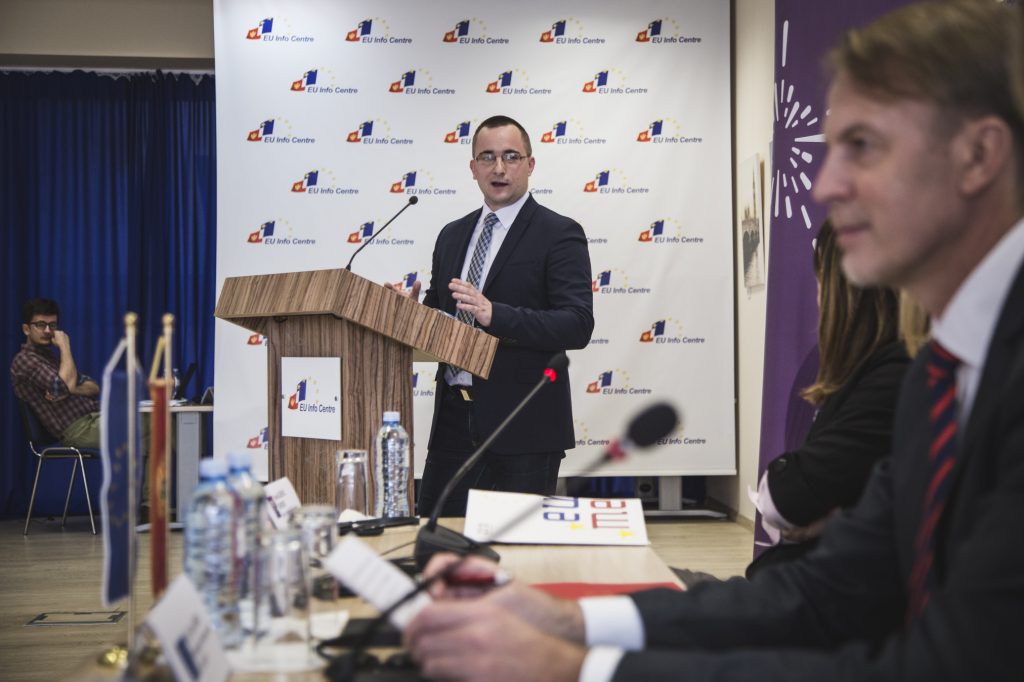Professional, responsible and well-trained public officers are crucial to a modern public administration and this can only be achieved by investing in young civil servants, which is precisely what the EU is doing. This was said at the initial meeting of the EU Scheme for Young Professionals in the Western Balkans.
The Ambassador of the EU to Montenegro, Aivo Orav, said that the societies of the Western Balkans share a common heritage and common challenges. The conflicts of the past decades have resulted in different forms of prejudice.
“Young people are facing numerous obstacles, often created as a consequence of administrative and mental barriers, which can lead to a lack of trust. Regional cooperation and youth exchange programmes are helping overcome these challenges. Initiatives such as the EU Scheme for Young Professionals from the Western Balkans not only strengthen the reconciliation process in the region, but they also show that public administration reform and good governance remain at the top of the EU enlargement agenda,” said Orav.
He stressed that Montenegro and the countries of the region need a professional, accountable and effective public administration, free from political interference and corruption.
The Minister of Public Administration, Suzana Pribilović, reminded that the process of public administration reform in Montenegro is connected to and conditioned by the process of European integration and harmonisation of the legal framework.
“I am convinced that participation in such EU programmes serves not only as an excellent strategy for joining the EU, but also as a major contribution to the economic and political progress of the countries that use them. On the other hand, this programme will greatly contribute to the strengthening of the capacities of our employees, trained in prestigious European institutions, the same places where some of the most influential leaders on the EU political scene acquired their knowledge and skills,” concluded Pribilovic.
The British Council Director, Vanja Madžgalj, said that the project was targeting young and talented civil servants who have already attended programmes at the Institute of Social Sciences in Paris and the European College in Bruges. Now, these officials will participate in a regional exchange, where for two weeks they will be dealing with specific practical issues at the heart of the European integration process, explained Madžgalj. She presented five officials from the region who will be staying in Montenegro, as well as five civil servants from Montenegro who will be placed in public institutions in the neighbouring countries.

The Director General for European Funds in the Ministry of European Affairs, Ivana Glišević Đurović, said that the prerequisites for an efficient, modern and professional public administration are professional and responsible officials, who think strategically and work in the interest of their countries.
“We are all aware that public administration reform is one of the priorities of European integration, not only for Montenegro, but also for the whole region of the Western Balkans. This reform is a significant precondition for the creation of modern state administrations that will effectively respond to the challenges and requirements imposed by the negotiation process and will successfully fulfil all the obligations arising from EU membership,” said Glišević Đurović.
Adnan Tatar, from the Office for the European Affairs of Bosnia and Herzegovina, said that he was glad to be in Montenegro and that he had already established personal and business connections with his colleagues from Montenegro.
“Sometimes this experience from countries that have already undergone some of these processes is worth more than any theoretical knowledge, so it will be immensely useful to us,” said Tatar.
Ljubica Maksimović Janković, a member of the Kosovo administration, said that this exchange means a lot to her because she will be learning about public administration, and said that her experiences from Paris and Bruges had been very positive. Sofija Milenković from the Serbian Ministry of Public Administration said that this project was the best thing to happen to her career.
“I sincerely hope that we will succeed in implementing all these knowledge in our countries and that each of us will make some significant progress in our administrations,” said Milenkovic.
